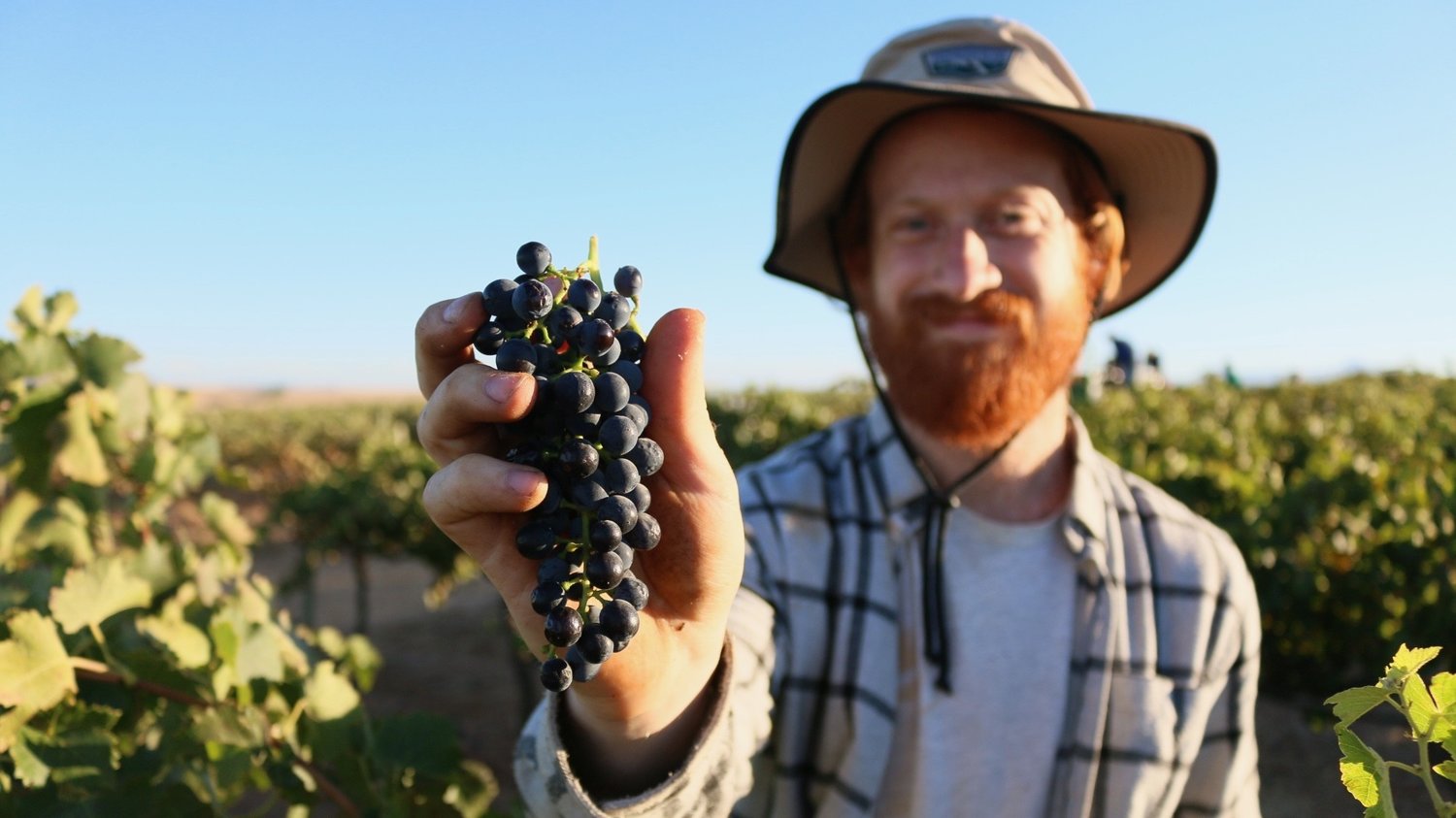B Corp was launched in 2006 by three friends who left their careers in private equity and business to help mission-driven businesses thrive. Within its first year, 19 businesses opted to get certified. Today, companies such as Toms shoes, Eileen Fisher, and Stumptown Coffee Roasters carry the seal. Its principles are built on what’s often referred to as the three P’s of sustainability: people, planet and profit. Certified B Corp companies are reevaluated every three years to ensure they maintain the standards of the program, which look at impact on communities, workers, customers and the environment. Every aspect of a business is analyzed, from supply chain to facilities to ingredients.
“There’s obviously a certain level of inequality that’s pervasive throughout [South Africa], and I think everyone’s got a responsibility to some degree to do whatever they can to improve the situation,” explains Brain. One of Lubanzi’s first initiatives was to set up a partnership with the nonprofit organization The Pebbles Project, which focuses on the well-being of farmworkers in South Africa’s wine industry. Fifty percent of Lubanzi’s net profits help fund medical and dental care, after-school programs and infant development programs through The Pebbles Project. Soon after, the winery also became Fair for Life fair trade certified.
“After several years of making these wines and trying to build a following, we were [looking] for ways to communicate who we are and find our audience,” says Brain. “That’s what led us to B Corp; it’s a collection of companies that really share a set of values.”
While many localized — and wine-specific certifications — with similar missions have formed over the years, such as Sustainability in Practice (SIP) in California’s Central Coast and Napa Green in Napa Valley, B Corp is unique in that it works across a global range of industries. Brain considers B Corp to be somewhat of a think tank and says he drew inspiration for Lubanzi’s practices from companies such as New Belgium Brewing and Patagonia.
Like South Africa, the U.S. has its own history of farmworker inequality. In the 1960s and ’70s, Cesar Chavez and Dolores Huerta fought for workers’ rights and galvanized laborers into action through a series of boycotts and strikes, especially in California’s grape-growing industry. Today, workers still struggle against wage and hour violations, as well as quality of life issues like affordable housing shortages. Wineries of all sizes and business models are finding ways to support what they call the “backbone” of the wine industry.
A to Z Wineworks in Oregon became the first Certified B Corp winery in the world in 2014. When the winery first learned about certification, “it just really felt natural to us,” says Amy Prosenjak, president and CEO of A to Z Wineworks/Rex Hill. “We were already thinking about the triple-bottom line [people, planet and profit]. We weren’t just in it to make money; we wanted to do good things with that money.”
The winery doesn’t own vineyards, so it contracts with about 50 growers in the state, “who then employ hundreds of [farmworkers] throughout the year,” she explains. “So we have a real stake in how … workers are treated and viewed within the industry. [They are] a huge contributor to our success.”
The winery provides financial support to the Virginia Garcia Memorial Foundation, which offers health care to farmworkers and their families, as well as to Causa Oregon, a nonprofit advocacy group for immigrants’ rights.
Second-generation run, Certified B Corp Sokol Blosser Vineyards in Oregon does own estate vineyards, but most of its labor is contracted out; like A to Z Wineworks, the vineyard supports farmworkers via nonprofit organizations. Sokol Blosser fundraises for ¡Salud!, a project through Tuality Healthcare Foundation, which gives medical and dental services to workers at both brick-and-mortar health centers and mobile health units. Sokol Blosser also hosts a mobile clinic on its property during harvest season.
Fetzer Vineyards in California, which received its B Corp certification in 2015, found that “one of the benefits of the B Corp certification is that going through that assessment process gave us a really great tool to assess how we’re doing in different areas of sustainability,” says Elizabeth Drake, regenerative development manager for the company.
The winery, which counts about 35 people in its vineyard department — and about 350 total employees — implemented a number of programs to support workers’ quality of life. One of its newest initiatives, the HEAL (Helping Employees Access Loans) Program, created in partnership with the Saving Bank of Mendocino County, provides funds for emergencies such as an unexpected medical surgery. Because the loan is paid back through automatic paycheck deductions, payments are made on time, “[which] helps build credit, a huge benefit for an employee that might not have a good credit score or creditor experience,” Drake says.
Since the 1990s, Fetzer has offered English as a second language (ESL) classes on its campus. “[Workers’] schedules are built so they can attend classes during the workday,” Drake says. An employee-run organic garden distributes fresh produce to all workers, ensuring access to healthy groceries.
However, while wineries continue to look into becoming Certified B Corp, Armando Elenes, secretary-treasurer for United Farm Workers, is dubious about B Corp’s ability to “move the needle” in terms of legal and policy changes in regard to farmworkers’ rights. “At this point, it appears to us to be more window dressing,” he says. “It goes well with their branding and marketing, but when it comes to real-world workers and what changes they’re making, it’s not going there.” He cites organizations such as the Equitable Food Initiative as a group that’s making strides because of its high worker engagement. “There’s a worker leadership team that, along with management, [creates a set of benchmarks] and ensures that those components are being followed and enforced.”



